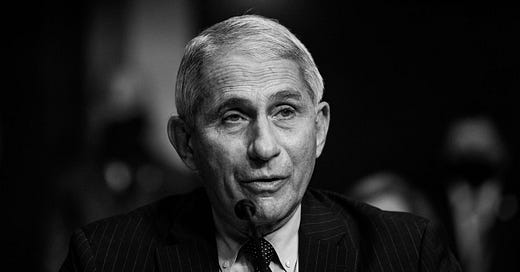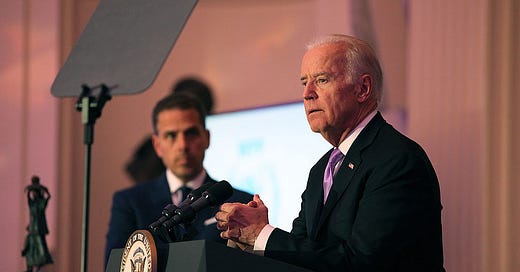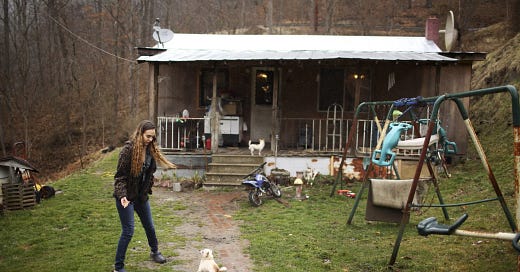
Discover more from Social Studies
Today I have a story up on Bari Weiss’ Common Sense about what happened to one couple when they questioned the gender curriculum at a prestigious California private school.
I’ve written about refugees fleeing gang violence, domestic violence survivors hiding in shelters, and the international drug trade. But I’ve never seen the level of fear from prospective sources that I did covering this story about a fancy private school and the multimillionaires who send their kids there.
Below is a longer, more detailed version of that story, for paying subscribers only.
In 2020, after schools shifted to virtual instruction as a result of the Covid-19 pandemic, Beka Sinclair started seeing, for the first time, exactly what her daughter Charlotte was being taught. “We’re big first graders and can help with this work,” the teacher told the students during the summer of protests and riots following the murder of George Floyd, before reading the class Ibram X. Kendi’s “Antiracist Baby,” a book that implores babies and toddlers to “Confess when being racist.” In another class, teachers asked kids to grab their stuffed animals and introduce them by their pronouns. “The six year-olds were like, ‘What’s a pronoun?’” Beka said. They barely knew what a noun was.
Charlotte and her brother Carter attended Marin Country Day School, a prestigious private elementary and middle school that sits on 35 bucolic acres of rolling coastal hills overlooking San Francisco Bay. MCDS’s school buildings have the clean lines and modern wood paneled exteriors of a Scandinavian ski chalet. The school draws half its students from San Francisco, and the other half mostly from Marin — two of the richest counties in America. Yearly tuition at MCDS is around $40,000.
Many MCDS parents grew up in affluent enclaves like Marin. Beka did not. She was raised, in her own words, “outside of the coastal elite world.” She grew up in Pittsburgh and then Milwaukee, in a conservative Christian household. “I grew up going to vacation in Appalachia, not Hawaii,” she told me. Even after attending Cornell University as a swim team recruit and being welcomed into that elite coastal scene, she retained much of her middle American, center-right politics.
Last year, while on campus, Beka noticed that the American flags that were once all over the school had all been removed. When she told her husband, Paul, at first he thought she must be mistaken. Paul was raised in a very different environment than Beka was, with very different politics. His father was a surgeon, and he grew up in Montreal and in Silicon Valley, in liberal Jewish circles. Today, he calls himself a centrist. “I try not to get into political conversations,” he said.
But then Paul went to campus and saw it for himself. He was taken aback. There were BLM and Pride signs everywhere, but not a single Old Glory in sight. Paul had already shrugged off other telltale signs of the direction the school was moving in — for example, when the school removed lessons on the civic mechanics of Corte Madera, where the school is located, from the curriculum, because it didn’t center indigenous voices. The removal of the flags “just coincided with all the different things that my daughter was coming home with, just with respect to being — I don’t know — just not feeling good about being an American,” he told me.
“What I saw more and more was, they were trying to create young activists,” he said.
MCDS had long been known for its independent spirit and its hands-on creative instruction. But beginning in about 2015, according to one former MCDS teacher, the school started to make a distinct pivot. “You could see the old going away,” the teacher said about the traditional curriculum of the school. There was less emphasis on kids “using hammers and taking apart stuff,” and more on “guest artists coming on, and there was always some gender or racial thing” in their presentations to students.
The school started bringing in outside consultants who made the faculty participate in exercises designed to expose their levels of social privilege, and train them in the new thinking about race and gender. “It was intense,” the former teacher said. “And it was just sobering to go to these meetings week after week after week, and just talk about the same thing over and over.” Some of the teachers who had been there for decades were unhappy with the shift; as they went into retirement, they were replaced with younger instructors of a more ideological bent, many of them from the East Bay. As these new teachers came in, the cultural shift of the school accelerated.
The former MCDS teacher had a daughter enrolled in the school, on financial aid. When she got to the second grade, “they really started pushing the curriculum,” he told me. He began seeing profound changes in his daughter. “This thing where they started introducing gender, and you can be whoever you want, and it’s fluid,” he said, “She started taking that on.”
She wasn’t the only one: a group of girls in the class went through similar experiences together. By fourth grade, the former teacher’s daughter was “dating” girl friends in her class. By sixth grade — last year — she had taken on male pronouns and a boy’s name, started wearing a breast binder and declared herself transgender.
In February, Beka told me, Rob Boutet, an MCDS dad, took one of his boys to a safari park in nearby Santa Rosa for his birthday. At the park’s gift shop, Rob offered the second grader his choice of a stuffed animal to take home. One option was a cheetah, but his son was leaning toward a different animal. Rob gently prodded him toward the cheetah, saying it was a fast runner, just like his son was. Suddenly the boy became angry and upset, seemingly out of nowhere. “Stop!” he yelled at his dad. “You’re trying to transgenderize me!”
Rob and his wife were stunned. They’d never heard their son use a word like that before. They didn’t even know he knew what “transgender” meant. And indeed, their son couldn’t quite explain what he meant himself. (Rob declined to comment for this story.)
Rob, Beka, and other parents soon discovered what had prompted the outburst. A few weeks before, the second graders were asked by their teacher to declare in front of the class whether they “felt like” a boy or a girl. Over the weeks that followed, many of the children’s parents, who at the time had no idea that the exercise had taken place, started talking to each other about signs of distress they’d seen in their kids. One of the children wondered what they were supposed to call their stuffed animals, since they had never asked them whether they were boys or girls. Another couldn’t reconcile their interest in unicorns with their love of sports.
The parents started hearing about similar exercises in other classes, too. One involved asking students in an art class to take popsicle sticks and to choose which of several jars to put them in. Each jar was marked by a different pronoun. Another involved looking at pictures of different toys and games, and saying whether each one made them feel more like a boy or a girl.
The parents were upset, but they also wanted to remain anonymous. As affluent and powerful as many of the parents who enroll their kids at MCDS are, even they are intimidated by the school’s administrators, who can kick their kids out at any time, or deny admission to their younger siblings, or otherwise complicate their lives and reputations in the community. “I think in these elite social circles, there’s so much social capital placed into getting into these elite schools,” said Beka. “It’s a part of the parents’ social standing.”
So the group of parents, Beka and Paul among them, asked Rob, who served as Vice President of the school’s Diversity, Equity and Inclusion Committee, to represent them. Rob wrote an email on March 2 to Katherine Dinh, the Head of School, asking a series of pointed questions, among them, how 7 and 8-year-olds, “still a few years away from puberty,” can “feel” like a boy or a girl? The email asked the school to provide evidence that asking 7 and 8-year-old children about their gender identities makes for “happier, more open-minded, more fulfilled” adults. “The curriculum at MCDS,” Rob wrote, “seems to be based on trendy political theory instead of pedagogy that has strong empirical support showing educational benefits to all children.”
The school’s response to Rob’s email answered none of those questions. It did, however, stipulate that the school was not willing to engage parents “through anonymous channels,” and would only meet with them “individually.” A few hours later, the school sent out an email to all second grade parents to address “questions about recent teachings about gender and gender identity.” That email affirmed that the second grade curriculum included “teaching about the gender spectrum” in order to “affirm gender identity.” As early as kindergarten, the email said, “some children do not identify within a gender binary.” (Kelly Watson, an MCDS spokeswoman, declined to answer my questions. Nor would members of the MCDS board of trustees comment.)
About a week after that, along with another parent, Rob met in person with Katherine Dinh and Stephanie Deitz, the head of the Lower School. Dinh sent the two parents an email recapping the meeting. In it, Dinh castigated Rob for acting out of line by bringing the anonymous parents’ concerns to her attention. “Please freely rid yourself of the sense of responsibility to speak on behalf of families,” she wrote. Dinh further wrote that the second grade parents’ communications with the school “caused a great deal of stress and feelings of unsafety for our staff members and teachers.” Their anonymously expressed concerns “left the teachers feeling vulnerable and that their professionalism was being called into question.” Dinh made sure to note that “LGBTQ+ staff,” in particular, “felt unsafe.”
“In short,” Dinh wrote, “the anonymity of families created a toxic environment for teachers and staff.”
Once again, Dinh insisted that the school meet with families strictly on an individual basis and never as a group, warning of “group think” as “a form of implicit bias.”
A month later, Boutet was kicked off the DEI Committee.
Frustrated with the school’s response, Beka and Paul applied to enroll Charlotte and Carter at the Mark Day School, another private school in Marin. They were accepted, and would start the following fall semester.
But Paul wanted other parents to know what was going on at the school. This led him to a rash decision. He contacted “Undercover Mother,” an anonymous online group on a warpath to expose left-wing indoctrination in private schools. He began sending them emails the schools were sending to second grade parents, as well as a couple dozen email addresses of parents at the school, some of whom had contacted him.
Undercover Mother’s rhetorical style is straight out of a shitpost on the pre-banned r/pol subreddit. “We know what a Grooming is,” one Undercover Mother spam email read, “because we looked up the FBI’s definition and it sounds pretty darn familiar to what’s happening in our classrooms.” The group began sending unsolicited spam emails to parents, from an encrypted email account called “MarinCountryDayInsider.” The emails directly attacked Katherine Dinh, MCDS’ Board of Trustees, and the National Association of Independent Schools, which is a trade association of American private schools.
On May 15, Katherine Dinh sent an email out to MCDS parents, warning that “an outside organization, Undercover Mother, known to target independent schools” was urging families “to denounce curriculum” on gender identity. “We will not be cowed by scare tactics,” she declared. Five days later, after parents had received more Undercover Mother emails, she sent another email to parents, claiming that Undercover Mother “targets the LGBTQIA+ community.” That same day, Undercover Mother sent a fourth email to MCDS parents, which directly responded to Dinh’s May 15 email, with a screenshot.
Paul insists that other parents had been in touch with the group as well. But it was Paul who got caught. In one of Dinh’s mass emails to parents, the school had, as an MCDS lawyer later explained, “made subtle changes to the emails sent to different individuals.” When Undercover Mother depicted that email in one of its spam messages, the school was able to trace it back to Paul.
On May 25, Katherine Dinh wrote to the Sinclairs, “We have done a thorough investigation, and have conclusive evidence that you are responsible for the anonymous emails that the community has been receiving.” The Sinclair family, Dinh informed them, had been removed from the school’s enrollment. “Today was the last day of school for your children, Charlotte and Carter,” she wrote. “The two of you,” Dinh informed the parents, “are not to be on campus again.”
About a week later, in a letter from the school’s attorney to the Sinclairs, the school accused the Sinclairs not only of forwarding MCDS emails and parent email addresses to Undercover Mother, but of personally drafting and sending the Undercover Mother emails themselves. If the school’s administrators truly believed what their lawyer wrote, then they were convinced that the Sinclairs had personally and publicly accused MCDS of “grooming” and of spearheading a “bloodless Marxist/Maoist revolution” and instigating a “war on the children.”
In the face of this accusation, Beka felt compelled to email the Board of Trustees. “We did not write or send those anonymous emails,” she assured them. “You kicked our children out of school because one of us forwarded a school email to undercovermothers with some email addresses.” Beka further wrote to other parents, expressing regret over having ever contacted Undercover Mother. She reiterated her opposition to MCDS’ gender curriculum, and to the emotional harm she and Paul and other parents believed it to be inflicting on children. But “we were surprised ourselves and displeased with the tone and content of their anonymous emails,” she wrote.
That email was sent on June 7. Five days later, the Sinclairs heard from Joe Harvey, the Head of School for Mark Day School, the school Charlotte and Carter were transferring to. The letter referenced Beka’s email to the parents. The school was “concerned about your questioning of the ‘science around human identity development’ and your assertion that there is a ‘political motive to deconstruct the gender binary as early as possible,’” Harvey wrote. He also claimed to be concerned about the Sinclairs’ outreach to Undercover Mother, and “about whether you will behave similarly toward Mark Day School.” The school must “mitigate the risk that admitting your family could pose to the sense of safety and well-being of students and parents, and faculty and staff,” he wrote. People who disagreed with Beka and Paul’s views on gender identity, Harvey said, “could be understandably offended by your presence on campus” and might choose to leave the school as a result. The school was therefore rescinding Charlotte’s and Carter’s admission. “Although not required by the terms of our enrollment agreement,” Harvey informed the Sinclairs, they would be refunding the children’s tuition. When the Sinclairs received notice of the refund, however, they discovered that the school had elected to keep their nearly $12,000 non-refundable deposit.
The Sinclairs are now in the process of relocating to Southern California and enrolling their kids in public school. Public education, they believe, still has some measure of accountability to parents, and they’re hopeful that in the community they’ve chosen, families have not yet been programmed into the ideological orthodoxy that pervades Marin Country Day School. In Marin, they still have friends who have stood behind them, but they have lost many, too. “I understand that it takes time,” Beka told me. “I understand that we’re social pariahs right now.”
Subscribe to Social Studies
Politics, media and social theory

















Our daughter attends San Francisco Day School, another so-called elite private K-8. I am a lifelong liberal Democrat. In fourth grade our daughter and her classmates were required to write down, as part of a homework assignment, their gender identity and sexual preference, i.e., whom they like to have sexual intercourse with. This is utter madness. Fortunately, the children just roll their eyes at what they see as incomprehensible nonsense and laugh at their teachers behind their backs.
i don't agree with a lot of the specifics of what chris rufo says, but how does he not capture the spirit of what's going on here?